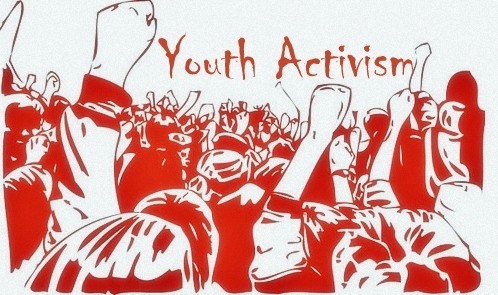Participation in youth activist organizations is extremely beneficial. Urban youth activists receive an education quite different from what they learn in formal schooling, however it is just as essential. Both “Adolescents’ Development of Skills for Agency in Youth Programs: Learning to Think Strategically” 1 and “Preparing for Democracy: How Community Based Organizations Build Civic Engagement Among Urban Youth” 2 highlight these benefits.
The two peer-reviewed articles discuss the significance of the “real-world” aspect of youth activism and the benefits of learning from experience. “Adolescents’ Development of Skills for Agency in Youth Programs: Learning to Think Strategically” lists several “agency skills” which youth develop by participating in youth programs. The term “agency skills” is defined in this article as “cognitive tools, including insights, precepts, knowledge, and action schemas that youth might employ to help them achieve goals” (Larson & Angus, 2011). These agency skills are increasingly useful for the 21st century economy, in which jobs are less about mindless labor and more about the setting and achieving of goals. On the other hand, Schiller praises these organizations for their efforts in closing the civic knowledge gap. Youth programs seek to ensure that youth achieve political literacy and are prepared to participate in a democracy. This is beneficial not only for the youth themselves, but also for community in which the youth live and are presently striving to improve.
There are many important life skills developed by participating in youth programs, and these include:
- Concrete Organizing Skills: Youth programs often involve projects or events. In order to carry them out successfully, members must learn to effectively organize and plan. Youth must learn to comply with deadlines, standards, and rules. Participants in one study explain that they learned how to “not wait until the last minute,” how to “spread the work out over a period of time,” how to “put things in order,” and how to figur[e] out how much it costs for [an] event” (Larson & Angus 2011). Schiller also mentions that the youth in her study “learned to collect data,” “to conduct and present research,” and “to plan a campaign” (Schiller 2013).
- Mobilizing Effort: The real-world feature of the projects and events which youth plan in these organizations is particularly helpful for engaging youth. As Shiller says, “connecting the issues to young people’s lives was another key for getting young people excited about making change” (Shiller 2013). Larson & Angus discuss how both successes and even negative outcomes of work can help youth learn. One study participant explains that, after reaching her goal for a fundraiser, she learned “that if you work hard, you can get it, because you know we finally worked for it and we reached it” (Larson & Angus, 2011). Youth learn that in order to achieve success, “it takes a lot of work,” “it takes longer than you think,” “it depends on effort,” and that “you’ve got to keep going despite anything” (Larson & Angus, 2011)
- Strategic Thinking: When preparing for events and projects, youth had to anticipate potential obstacles that might unfold as well as how different groups of people might respond to their actions. This meant learning to develop flexibility around their plans and constantly thinking about the “nonlogical dynamics of human behavior” (Larson & Angus, 2011), such as a politician saying yes and later saying no, which one often encounters in the real world as opposed to the logical nature of projects or experiments a student might experience in school.
- Building a Civic Identity: By identifying problems in their community and actively working to fix them, youth begin to see themselves as activists and incorporate this title into their self-identity. Schiller notes that the youth in her study “were surprised at how much influence young people could have” (Schiller, 2013). It is critical for low-income urban minority youth, who frequently are disadvantaged in society’s structure of power, to believe that they have the ability to demand change.
The education which Boston youth receive by participating in youth programs is very different from that learned in Boston Public Schools– and yet it is just as important. Youth activists develop skills that simply cannot be learned out of a textbook or learned from a teacher’s lecture. These skills require much trial and error. Their development involves experiential learning which is quite difficult to provide in formal schooling. In such a way, it is an alternative form of urban education. Furthermore, the skills learned in these organizations is beneficial not only for future success in an adolescents’ lives, but also for the Boston community at present, which experiences improvement in quality-of-life thanks to the work of these teenagers.
Sources
1. Angus, R.M., & Larson, R.W. (2011). Adolescents’ Development of Skills for Agency in Youth Programs: Learning to Think Strategically. Child Development, 82, 277-294. Retrieved from http://web.b.ebscohost.com/ehost/detail/detail?sid=41e42575-5e9f-4a4f-bbb6-7125cf3de330%40sessionmgr113&vid=0&hid=110&bdata=JnNpdGU9ZWhvc3QtbGl2ZQ%3d%3d#db=a9h&AN=57770297
2. Schiller, J.T. (2013). Preparing for Democracy: How Community-Based Organizations Build Civic Engagement Among Urban Youth. Urban Education, 48, 69-91. Retrieved from http://uex.sagepub.com/content/48/1/69.full.pdf+html.
